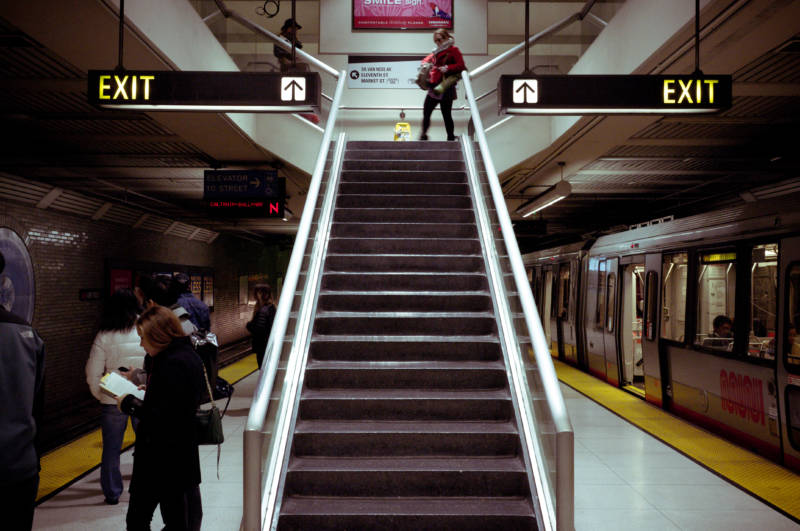Cell service could be coming soon to one of the last places in the truly civilized world that still lacks it: San Francisco Muni's tunnels and underground stations.
That's the bottom line of a proposal announced Wednesday under which BART, which finished installing cell service in its tunnels and the Transbay Tube in 2010, will partner with Muni to extend coverage to the city-run transit system.
The plan would allow BART to negotiate with cellular carriers to install equipment in the Muni tunnels and underground stations.
Mobile service for Muni's underground passengers has been promoted as a safety enhancement -- allowing passengers freer communications in emergencies -- as well as a convenience for those wanting to tell their bosses and dates they'll be late because of a delayed train.
Muni has said in the past it simply didn't have the money to install an underground cellular network. The new plan would get past that hurdle by having BART take the lead on the project and getting the telecoms who would benefit from the new service to pay for it.
